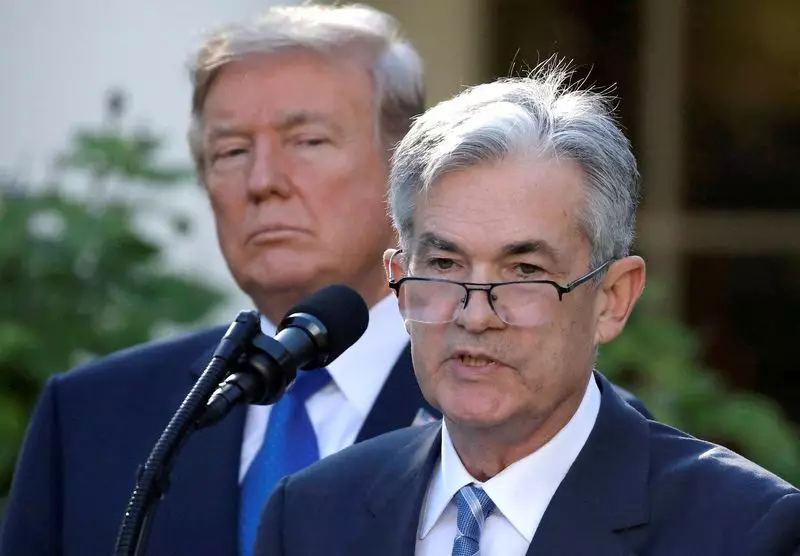The impending presidency of Donald Trump has led to speculation about potential changes in key economic positions, particularly within the Federal Reserve. While Trump suggested in a recent interview that he does not intend to remove Jerome Powell from his role as Fed Chair, the history of their relationship paints a picture of a complex and often contentious dynamic. As discussions surrounding interest rates and economic policy gain traction, it is vital to unpack the implications of Trump’s presidency on the Federal Reserve and broader economic landscape.
Despite Trump’s past criticisms of the Federal Reserve and Powell, the president-elect made it clear in his interview on NBC News’ “Meet the Press” that he does not foresee an immediate replacement. Powell, appointed by Trump in 2018, will complete his term through 2026, barring any unexpected turmoil. This sentiment marks a shift in tone, especially considering Trump’s previous remarks regarding Powell’s leadership, particularly when the Fed began increasing interest rates. Trump’s comment that he believes Powell would not resign if asked indicates a nuanced understanding of the challenges inherent in attempting to govern a body traditionally regarded for its independence.
Trump’s relationship with Powell has been marred by friction, especially over interest rate policies. During his first term, the president was vocal about his dissatisfaction with the Fed’s decisions to raise rates, and he even considered firing Powell during critical moments in 2018. His disdain for the Fed’s policy decisions has been historically noteworthy; many prior presidents maintained a distance from the central bank’s operations to uphold its independence. Trump’s active engagement has sparked debate about the limits of executive influence over the Fed and the potential ramifications for monetary policy.
The backdrop of economic promises made during Trump’s campaign—particularly the commitment to lower mortgage rates—could lead to inevitable clashes between the president’s objectives and the Fed’s mandate. Given Trump’s inclination toward implementing substantial tariffs, concerns rise about the broader impact on inflation and monetary policy. Should inflation remain a pressing issue, Powell’s commitment to maintaining the Fed’s dual mandate of maximizing employment and stabilizing prices could conflict directly with Trump’s economic strategies.
A legal framework surrounds the operation of the Federal Reserve, designed to insulate it from political pressures. Powell has reaffirmed his intention to serve out his term, as indicated by his refusal to resign if Trump asked him to. This highlights a critical aspect of the Fed’s authority—the professionals running it often operate independently of prevailing political winds. Trump’s history of attacking the Fed, however, represents a significant departure from traditional presidential behavior and raises questions about the future independence of the central bank.
Moreover, Trump’s expressed desire to have more influence over Fed decisions speaks volumes about his views on economic governance. Such an approach could threaten the long-standing conventions that have underpinned monetary policy in the U.S. This potential shift could have lasting implications not just for the markets but also for public perception of the Fed’s role.
Market observers are already speculating about the Federal Reserve’s upcoming policy actions. As the labor market shows signs of cooling, expectations of interest rate cuts have emerged for the December policy meeting. A potential reduction to the 4.25%-4.50% range would contrast sharply with the elevated rates set in prior months, suggesting a response to broader economic pressures. Traders are acutely aware that the interplay between Trump’s economic policies and Fed decisions could lead to volatility in financial markets, complicating investment strategies.
As Donald Trump prepares to embark on his presidency for a second term, the implications for the Federal Reserve are vast and multi-faceted. With Jerome Powell at the helm, a potential struggle between the administration’s economic goals and the Fed’s independence looms large. Observers and stakeholders alike will be watching closely, as the outcome of this dynamic will not only influence economic policy but also shape perceptions of governance and institutional integrity in America. In a landscape characterized by uncertainty and friction, the road ahead will undoubtedly be challenging for both the executive and the Fed.

